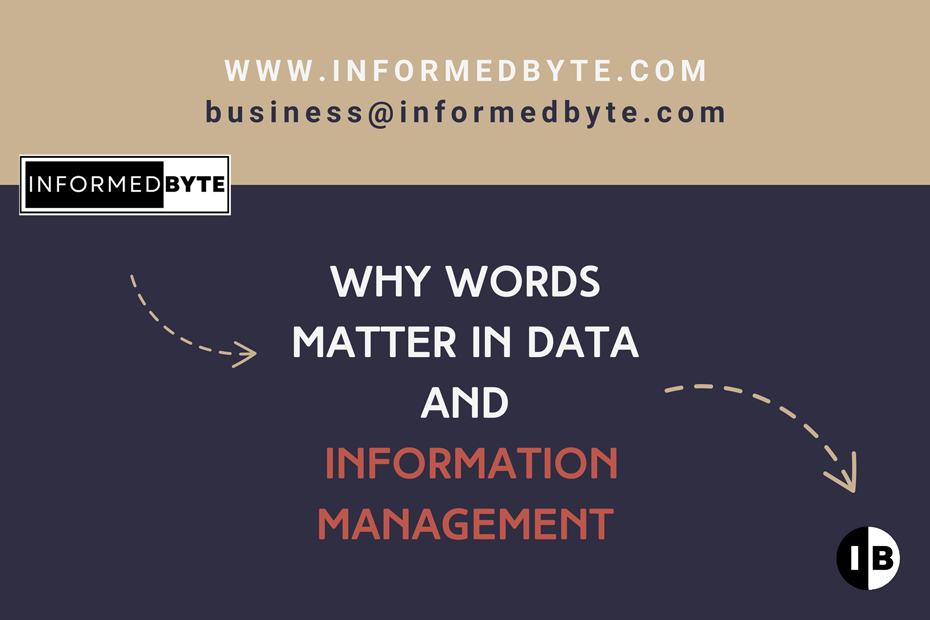Controlled Vocabularies vs Chaos: Why Words Matter in Data Management
October 21, 2025
As your business navigates through the vast sea of information, you might find yourself grappling with the chaos that arises from inconsistent terminology. Controlled vocabulary implementation offers a structured approach to managing data and ensuring that everyone is on the same page.

Image credit by Chen from Pixabay
Imagine you are tasked with organising a massive dataset. Without a controlled vocabulary, you might encounter various terms used interchangeably, leading to confusion and inefficiencies. For instance, one person might tag a document as "AI," while another might use "Artificial Intelligence." Although both terms refer to the same concept, the lack of standardisation can create discrepancies in data retrieval and analysis.
Controlled vocabularies provide a standardised set of terms that are used consistently across an organisation. This standardisation is crucial for effective data management, as it ensures that everyone uses the same terminology, reducing ambiguity and enhancing clarity. By implementing a controlled vocabulary, you can streamline data entry, improve searchability, and facilitate better communication within your organisation.
However, the benefits of controlled vocabularies extend beyond mere standardisation. They also play a pivotal role in terminology management, which involves the systematic control and governance of terms used within an organisation. Terminology management is essential for maintaining the integrity and accuracy of your data, as it helps prevent the proliferation of synonyms, homonyms, and other linguistic variations that can lead to confusion.
One of the key aspects of terminology management is the creation of a thesaurus or a taxonomy. A thesaurus is a structured list of terms that includes synonyms, antonyms, and related concepts, providing a comprehensive reference for users. A taxonomy, on the other hand, is a hierarchical classification system that organises terms into categories and subcategories. Both tools are invaluable for managing terminology and ensuring that your data is organised in a logical and coherent manner.
You might be tempted to rely on simple tagging as a means of organising your data. However, "just tagging it" is not a viable solution in the long run. Tagging can be subjective and inconsistent, leading to a fragmented and disorganised dataset. Without a controlled vocabulary, tags can vary widely, making it difficult to retrieve and analyse data effectively. For example, one user might tag a document as "HR," while another might use "Human Resources," and yet another might use "Personnel." These variations can hinder your ability to find relevant information quickly and accurately.
Moreover, tagging lacks the depth and structure provided by controlled vocabularies. While tags can offer a quick way to categorise data, they do not provide the same level of detail and context as a well-defined vocabulary. Controlled vocabularies, on the other hand, offer a more robust and comprehensive approach to data management, ensuring that terms are used consistently and accurately.
In addition to improving data retrieval and analysis, controlled vocabularies also enhance data quality and integrity. By standardising terminology, you can reduce the risk of errors and inconsistencies in your data. This is particularly important in industries where accuracy and precision are paramount, such as healthcare, finance, and legal services. In these fields, even a small error in terminology can have significant consequences, making controlled vocabularies an essential tool for ensuring data quality.
Furthermore, controlled vocabularies facilitate better communication and collaboration within your organisation. When everyone uses the same terms, it becomes easier to share information and collaborate on projects. This is especially important in large organisations with diverse teams, where clear and consistent communication is key to success. By implementing a controlled vocabulary, you can foster a culture of clarity and precision, improving overall efficiency and productivity.
Another advantage of controlled vocabularies is their ability to support data governance and compliance efforts. In today's regulatory environment, organisations are required to adhere to strict data management standards and practices. Controlled vocabularies help ensure that your data is managed in accordance with these standards, reducing the risk of non-compliance and associated penalties. By providing a clear and consistent framework for data management, controlled vocabularies can help you meet regulatory requirements and maintain the trust of your stakeholders.
As you delve deeper into the world of data management, you will come to appreciate the value of controlled vocabularies. They offer a structured and systematic approach to managing terminology, ensuring that your data is accurate, consistent, and easy to retrieve. While tagging might seem like a quick and easy solution, it lacks the depth and rigor provided by controlled vocabularies. By investing in a controlled vocabulary, you can enhance the quality and integrity of your data, improve communication and collaboration within your organisation, and ensure compliance with regulatory standards.
As you navigate the complexities of data management, remember that words matter, and a controlled vocabulary can make all the difference. Let Informed Byte help with consulting on or implementing an improved vocabulary solution. Book your initial consultation today.
Your controlled vocabulary starts here
